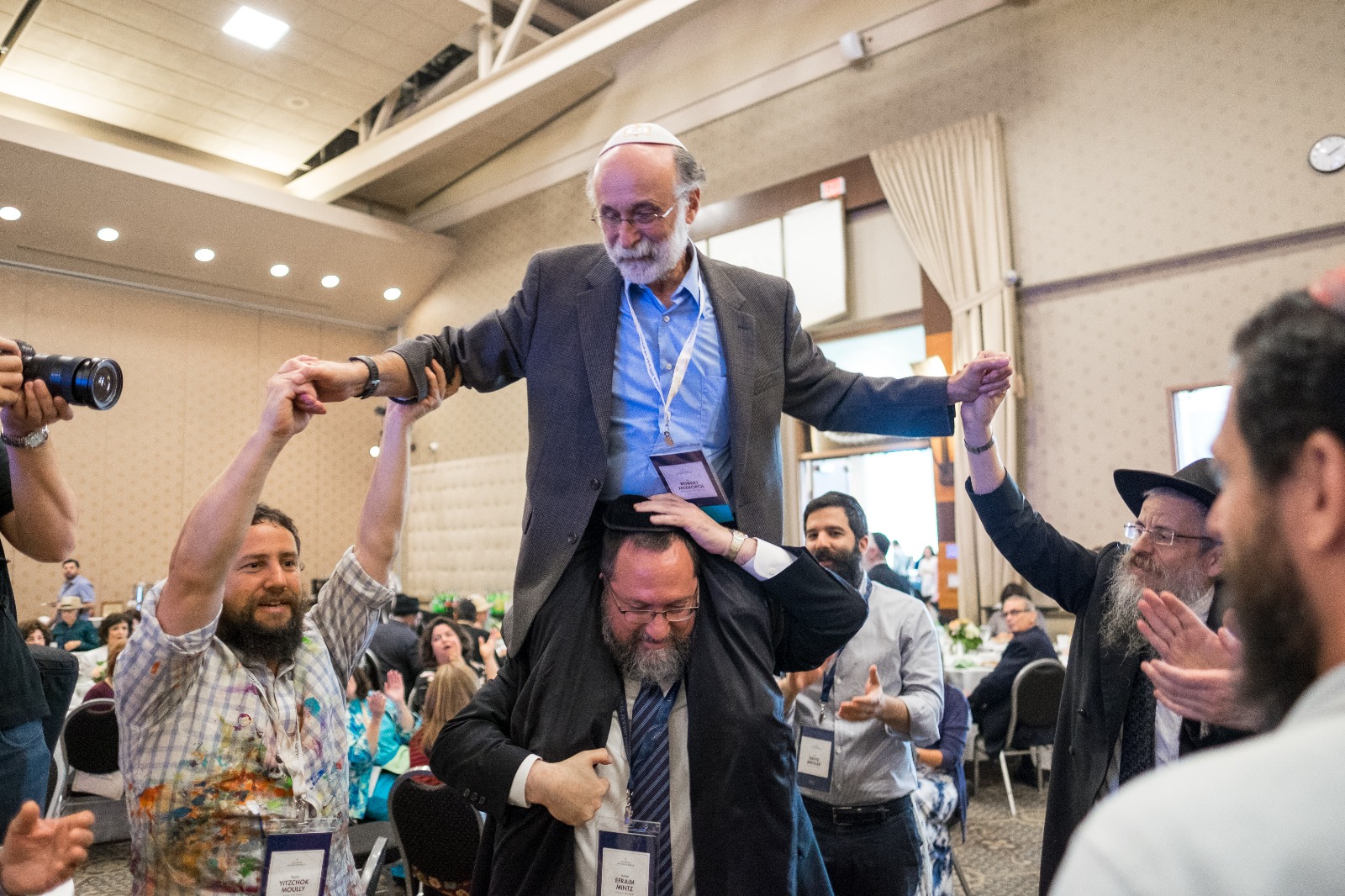 Photo courtesy of Jewish Learning Institute.
Photo courtesy of Jewish Learning Institute. At age 6, Robert Meeropol’s parents were executed by the United States government. To this day, he continues a crusade to see them granted posthumous clemency. And, thanks to an unexpected twist during his appearance at the Jewish National Retreat, the 71-year-old has finally celebrated his bar mitzvah.
Meeropol is the son of Julius and Ethel Rosenberg, who in 1951 were convicted as spies working for the Soviet Union. The husband and wife were put to death by electric chair in 1953. He and his brother Michael Meeropol have spent their lives working to correct what they see as a tragic mistake driven by anti-Semitism and anti-Communist hysteria.
He spoke about his family’s tireless campaign at the Rohr Jewish Learning Institute’s annual National Jewish Retreat in Providence, Rhode Island. Their activism has included the documentary “Heir to an Execution,” produced and directed by Michael’s daughter, documentarian Ivy Meeropol. The Rosenbergs’ younger son also shared painful details of his childhood experience as the son of parents whose names are synonymous with betrayal of the United States. He and his brother were subjected to the turmoil of moving into and out of the custody of several relatives, as well as living in a children’s home. They were eventually adopted by writer Abel Meeropol and his wife Anne, taking the couple’s surname.
At the end of Meeropol’s presentation, JLI director Rabbi Efraim Mintz asked if he had ever worn tefillin.
Meeropol had never taken part in the ancient ritual of wearing the small leather boxes, containing Torah verses strapped to the head — with the leather strap around his left arm. Yesterday, 58 years after he would have performed this mitzvah for the first time, Meeropol followed in the footsteps of centuries of Jewish males.
With Mintz’s help, Meeropol affixed the phylacteries to his head and arm. Hundreds of attendees greeted his milestone by dancing and singing in songs of celebration.
In his presentation at the event, Meeropol had detailed evidence he and his brother have uncovered in their endeavor to understand what had happened to their parents. While the Meeropols acknowledge that their father Julius organized a spy network while acting as a Soviet agent, they maintain their mother Ethel had no involvement in espionage.
Many critics and historians disagree with the Meeropols’ assertion, citing their own evidence. In 2017, President Donald Trump used a press briefing in Paris to state that the Rosenbergs had been convicted of treason. In fact, the government was never able to bring even a legal accusation of treason, as the United States was not at war with the Soviet Union in 1951. Instead, the Rosenbergs were convicted of conspiracy to commit espionage.
In making this error, Trump may have inadvertently breathed new life into the Meeropols’ crusade. His dismissal came on the heels of the brothers’ rejection by other presidents.
Prior to President Barack Obama’s exit from office, Robert and Michael Meeropol collected more than 60,000 signatures supporting their pursuit of seeing their parents’ convictions reviewed. On December 1, 2016, they went to the White House to deliver those signatures, as well as relevant documentary evidence, to the outgoing president.
President Obama refused to acknowledge the Meeropols’ efforts. This was despite additional advocacy the brothers received from several Democrats including U.S. Reps Jim McGovern (D-Worcester) and Richard Neal (D-Springfield), as well as Massachusetts Sens. Elizabeth Warren and Edward Markey.
Their attempt echoed a similar visit the brothers paid to then-President Dwight D. Eisenhower in 1953 as small children. Before their parents’ executions, they asked Eisenhower to grant the Rosenbergs clemency and save them from death at the hands of the U.S. government. The new president, facing one of his first decisions as commander in chief, declined their appeal.
Meeropol’s first wearing of tefillin gave uplifting closure to an emotionally fraught session. His first observance of this religious rite had a clear impact on one of the Cold War’s most famous orphans.
Describing it as “a very emotional moment for both Robert and myself,” Mintz emphasized the redemptive quality of the occasion. “It was extraordinary seeing someone who’s been through such a difficult childhood experience being finally able to perform this important mitzvah.”
Jackie Danicki is a business consultant and media contributor. Her work and writing collaborations with high-profile senior executives have been featured in publications including Fortune, Forbes, Advertising Age, the New York Observer, MediaPost and The Drum.





















 More news and opinions than at a Shabbat dinner, right in your inbox.
More news and opinions than at a Shabbat dinner, right in your inbox.